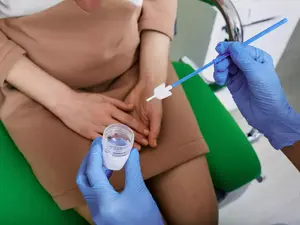Understanding Feminine Health Issues
Feminine health issues encompass a wide range of medical and psychological conditions that specifically affect women. These issues can impact various aspects of a woman’s life, from physical well-being to mental health. Understanding these health concerns is crucial for maintaining overall health and ensuring timely intervention and treatment.
Common Feminine Health Issues
1. Menstrual Health
Menstrual health is a fundamental aspect of feminine health. Many women experience problems related to their menstrual cycle, including:
Dysmenorrhea
Dysmenorrhea refers to painful menstrual cramps that can be severe enough to interfere with daily activities. These cramps are caused by the uterus contracting to expel its lining. While some discomfort during menstruation is normal, severe pain might indicate an underlying condition, such as endometriosis or fibroids.
Menorrhagia
Menorrhagia is characterized by heavy menstrual bleeding. Women with this condition may experience bleeding that lasts longer than seven days or requires changing sanitary protection every hour. Heavy bleeding can lead to anemia, fatigue, and can significantly impact a woman’s quality of life. It often results from hormonal imbalances, fibroids, or other underlying health issues.
Amenorrhea
Amenorrhea is the absence of menstruation. Primary amenorrhea is when a girl hasn’t started her period by age 16, while secondary amenorrhea occurs when a woman who previously had regular periods stops menstruating for three or more months. Causes can include stress, significant weight loss, excessive exercise, or conditions like PCOS or thyroid disorders.
Premenstrual Syndrome (PMS)
PMS encompasses a variety of emotional and physical symptoms that occur one to two weeks before menstruation. Symptoms can include mood swings, bloating, headaches, and breast tenderness. Severe PMS, known as premenstrual dysphoric disorder (PMDD), can be debilitating and significantly disrupt daily life.
2. Reproductive Health
Reproductive health issues are another critical area of concern for women. These conditions can affect fertility, pregnancy, and overall reproductive health.
Polycystic Ovary Syndrome (PCOS)
PCOS is a hormonal disorder common among women of reproductive age. Women with PCOS may have infrequent or prolonged menstrual periods or excess male hormone (androgen) levels. The ovaries may develop numerous small collections of fluid (follicles) and fail to regularly release eggs. Symptoms include irregular periods, acne, weight gain, and excess body hair.
Endometriosis
Endometriosis occurs when tissue similar to the lining inside the uterus (the endometrium) grows outside the uterus. This condition can cause severe pain, especially during menstruation. It can also lead to fertility problems. Common symptoms include painful periods, pain during intercourse, pain with bowel movements or urination, and excessive bleeding.
Fibroids
Fibroids are non-cancerous growths that develop in or on the uterus. They can vary in size and number, causing symptoms such as heavy menstrual bleeding, pelvic pain, and pressure on the bladder or bowel. While fibroids are typically benign, they can lead to complications such as anemia from heavy bleeding or fertility issues.
3. Sexual Health
Sexual health is an important aspect of overall well-being and includes issues such as:
Sexually Transmitted Infections (STIs)
STIs can have serious consequences if left untreated, including pelvic inflammatory disease (PID), infertility, and chronic pain. Common STIs include chlamydia, gonorrhea, human papillomavirus (HPV), and herpes.
Vaginal Health
Maintaining vaginal health involves understanding and preventing infections such as bacterial vaginosis, yeast infections, and vaginal atrophy, which can occur during menopause. Symptoms of these conditions can include itching, discharge, and discomfort during intercourse.
4. Maternal Health
Maternal health refers to the health of women during pregnancy, childbirth, and the postpartum period. Key concerns include:
Prenatal Care
Regular prenatal visits help monitor the health of the mother and the developing fetus. These visits can detect and manage potential complications early, ensuring a healthy pregnancy and delivery.
Postpartum Depression
Postpartum depression affects some women after childbirth, causing severe mood swings, exhaustion, and a sense of hopelessness. It’s important to recognize and treat this condition to ensure the well-being of both the mother and the baby.
5. Bone Health
Women are at a higher risk of developing osteoporosis, a condition that weakens bones and makes them more susceptible to fractures. This risk increases after menopause due to a decrease in estrogen levels. Preventative measures include adequate calcium and vitamin D intake, regular weight-bearing exercise, and avoiding smoking and excessive alcohol consumption.

